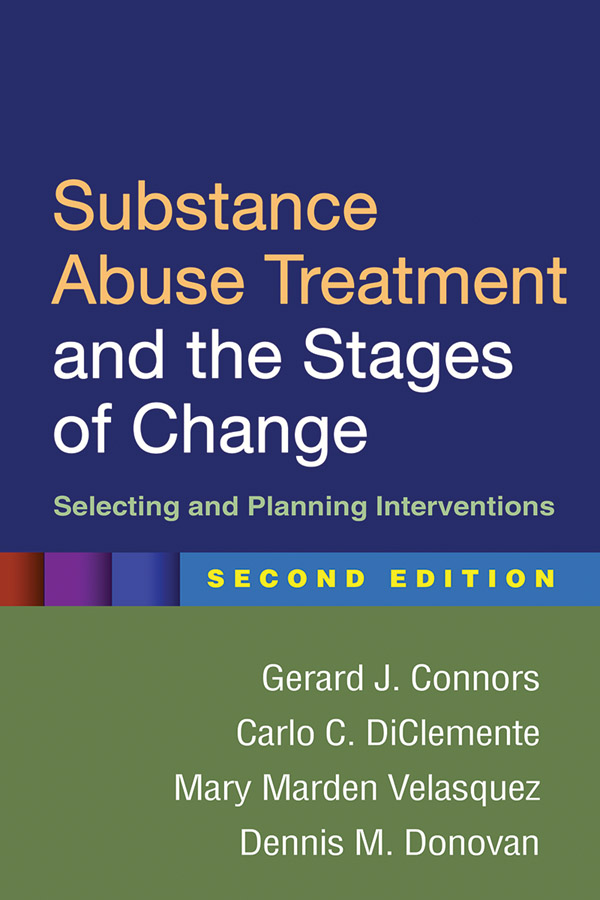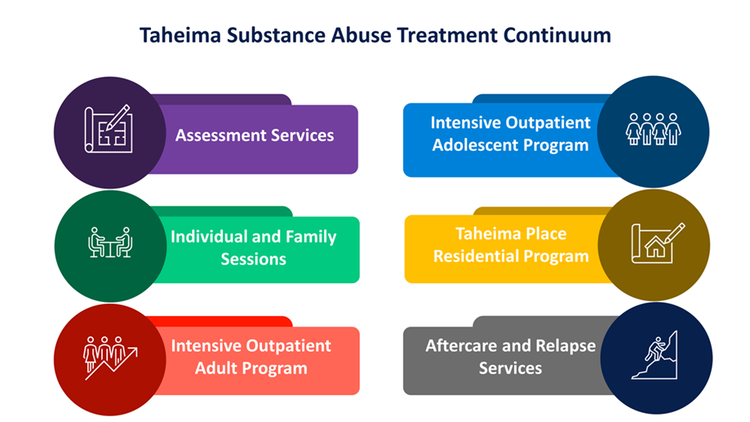Comprehensive Overview to Drug Abuse Therapy: Recognizing, Techniques, and Long-term Recuperation
Chemical abuse describes the hazardous or dangerous use psychoactive substances, including alcohol and illegal drugs. It is not just an issue of determination or poor decision-making-- it's an intricate condition affected by organic, psychological, and social elements. Individuals dealing with drug abuse frequently experience uncontrollable drug-seeking habits despite adverse repercussions in their individual, expert, and social lives. Over time, these compounds can change mind function, harm judgment, and create mental and physical reliance. Comprehending the nature of Substance Abuse is the initial step towards resolving it successfully.
The reasons of drug abuse are diverse. Genes, psychological health problems, environmental stress, trauma, and exposure to materials at a very early age can all add to the growth of addiction. It is typically interlinked with problems such as clinical depression, anxiousness, or trauma (PTSD) For lots of individuals, alcohol and drugs come to be coping systems-- tools to escape psychological discomfort or stress. This temporary alleviation quickly provides means to long-term effects, as tolerance builds and the person requires even more of the Substance to accomplish the same impact. (Inpatient rehab)
Identifying the indications important Abuse early can protect against the condition from intensifying. Usual indication consist of adjustments in behavior, disregard of duties, withdrawal from enjoyed ones, financial difficulties, and physical signs such as fat burning, tiredness, or inadequate hygiene. When left without treatment, Substance Abuse can result in serious health issues, harmed connections, and even sudden death. As a result, early intervention and access to treatment are important for individuals having a hard time with dependency.
The Importance of Looking For Substance Abuse Treatment
Seeking expert treatment for Substance Abuse is among the most vital choices an individual can create their wellness and future - rehab near Chester NJ. Dependency is not something that can be gotten rid of by determination alone-- it needs organized intervention, assistance, and consistent support. Treatment programs are developed to deal with both the physical dependence and the underlying mental or emotional concerns that drive addicting actions. Without treatment, the cycle of relapse and self-destruction often proceeds, placing the person's life and health in danger
The significance of professional therapy depends on its capability to provide a secure and regulated environment for recovery. During cleansing, physician help patients take care of withdrawal signs that can be possibly life-threatening and unpleasant. After detox, therapy and treatment sessions enable individuals to challenge the origin of their dependency, create dealing skills, and restore their sense of self-worth. Therapy also helps re-establish healthy regimens, framework, and accountability-- every one of which are vital for lasting recovery.
Past the emotional and physical elements, drug abuse treatment plays a significant duty in restoring connections and social performance. Addiction usually causes broken trust, seclusion, and strained family dynamics. Via family treatment and team sessions, people can rebuild interaction and reconnect with loved ones. By including family participants in the recovery procedure, treatment programs strengthen the assistance network essential for preserving sobriety. Fundamentally, seeking treatment is not almost giving up medications or alcohol-- it's regarding redeeming one's life and producing a structure for a healthier, much more fulfilling future.
Kinds Of Substance Abuse Treatment Programs
There is no one-size-fits-all method to treating dependency. Each individual's journey is special, therefore are their treatment needs. Substance Abuse treatment programs can be categorized into numerous types, ranging from inpatient rehabilitation to outpatient counseling and holistic care. The option of therapy depends on factors such as the seriousness of addiction, the existence of co-occurring psychological health problems, and the person's way of living and assistance system.
Inpatient or Residential Treatment supplies a very organized setting where people live in a treatment facility for a particular duration, generally between 30 and 90 days. This kind of program provides round-the-clock clinical supervision and extensive treatment sessions. It's excellent for individuals with severe addictions or those that have slipped back numerous times. Inpatient care removes the individual from everyday triggers and temptations, enabling them to concentrate only on healing. Treatments might consist of cognitive-behavioral treatment (CBT), dialectical actions treatment (DBT), and group counseling, all focused on helping individuals comprehend and manage their addiction.
Outpatient Treatment Programs offer even more flexibility, permitting people to proceed with their day-to-day responsibilities while participating in set up therapy sessions. This strategy is commonly suitable for people with moderate to modest dependencies or as a step-down stage after completing inpatient rehabilitation. Outpatient programs stress accountability and long-term relapse avoidance methods. They might consist of specific therapy, medication-assisted therapy (FLOOR COVERING), and support system such as Narcotics Anonymous (NA) or Alcoholics Anonymous (AA)
Along with these, all natural and different treatments are becoming significantly prominent. These programs resolve the body, mind, and spirit connection by including practices such as yoga exercise, reflection, art therapy, and nutritional counseling. Lots of facilities also offer dual-diagnosis therapy for those handling both addiction and mental health problems. This comprehensive method ensures that the person obtains versatile treatment that advertises healing on multiple levels.
The Benefits important Abuse Treatment
The advantages of going through drug abuse therapy expand far beyond avoiding medications or alcohol. One of one of the most immediate benefits is boosted physical wellness. Lasting drug abuse takes a toll on the body, impacting vital body organs such as the liver, heart, and brain. Via detoxification and healthcare, the body starts to fix itself, resulting in better power degrees, enhanced rest, and a stronger immune system. Nourishment and physical fitness programs within rehabilitation facilities better enhance physical recuperation.
Psychological and emotional health and wellness advantages are equally substantial. Addiction typically covers up underlying mental issues that require to be attended to. Throughout treatment, patients get access to licensed specialists and therapists who help them browse feelings of trauma, pity, or shame. By establishing psychological understanding and strength, individuals find out much healthier ways to manage stress and anxiety and triggers. Cognitive-behavioral therapy (CBT) and other evidence-based strategies encourage people to transform adverse idea patterns that contribute to relapse.

Evidence-Based Approaches in Modern Addiction Treatment
Today's chemical abuse treatment methods are grounded in clinical research and clinical practice. Evidence-based therapies guarantee that people get treatments confirmed to be reliable. Among one of the most commonly made use of approaches is Cognitive-Behavioral Treatment (CBT), which Full Report assists individuals recognize and transform believed patterns that cause Substance use. By comprehending the connection between emotions, ideas, and actions, individuals can find out to handle triggers in healthier means - rehab near Chester NJ. CBT is frequently incorporated with various other therapies to resolve co-occurring conditions such as anxiety or anxiety
Another reliable method is Medication-Assisted Treatment (MAT), specifically for opioid and alcoholism. Floor covering uses FDA-approved drugs such as buprenorphine, methadone, or naltrexone to minimize desires and withdrawal signs and symptoms. When integrated with therapy and behavior modification, MAT significantly boosts therapy retention and minimizes relapse prices. It enables individuals to support their lives while concentrating on mental recuperation and rebuilding partnerships.
Group and family members therapy are likewise indispensable parts of evidence-based therapy. Team sessions check here create a room for individuals to share their tales and get understandings from others in healing. Family therapy, on the other hand, addresses the relational damages triggered by dependency. It helps liked ones understand the nature of the condition and equips them with devices to supply assistance while establishing healthy and balanced limits. These cumulative restorative methods strengthen the healing procedure and advertise long-term healing.
Developing a Life After Treatment: Maintaining Long-Term Healing
Healing does not end after finishing a therapy program-- it's a long-lasting trip that requires commitment, self-control, and continuous assistance. Transitioning back to day-to-day life can be challenging, as people are faced with triggers, stressors, and obligations that can examine their soberness. This is where aftercare programs play an important function. Aftercare may include ongoing therapy, peer support groups, sober living arrangements, and regression prevention planning. The goal is to aid individuals preserve the development they've made and stay clear of sliding back into old patterns.
Establishing a new way of life centered on health and function is essential for long-term success. Lots of people find fulfillment by pursuing leisure activities, health and fitness regimens, education and learning, or volunteer work. Developing a structured daily regimen aids stop dullness-- a typical trigger for relapse. Reconnecting with household, fixing connections, and surrounding oneself with favorable impacts additionally strengthens a healthy way of living. It's additionally critical to acknowledge that setbacks can happen, however they do not specify the person's journey. What matters most is the readiness to look for help and proceed moving forward.
Inevitably, sustained recovery has to do with change-- literally, psychologically, and spiritually. It entails redefining one's identification and searching for meaning right here past addiction. People that commit to long-lasting recuperation usually end up being supporters, coaches, or support numbers for others having a hard time with Substance Abuse. Their stories of strength serve as effective reminders that recovery is feasible. With the best therapy, support, and frame of mind, any person can conquer dependency and construct a fulfilling, substance-free life.
Final thought: A Course Towards Healing and Hope

Seeking specialist treatment for Substance Abuse is one of the most critical decisions an individual can make for their health and wellness and future. Beyond the physical and psychological elements, Substance Abuse treatment plays a considerable role in bring back partnerships and social performance. Substance Abuse therapy programs can be classified right into a number of kinds, varying from inpatient recovery to outpatient therapy and holistic care. Inpatient or Residential Therapy supplies a highly structured environment where people live in a therapy facility for a particular duration, generally in between 30 and 90 days. The advantages of undertaking Substance Abuse treatment extend far beyond staying away from medicines or alcohol.